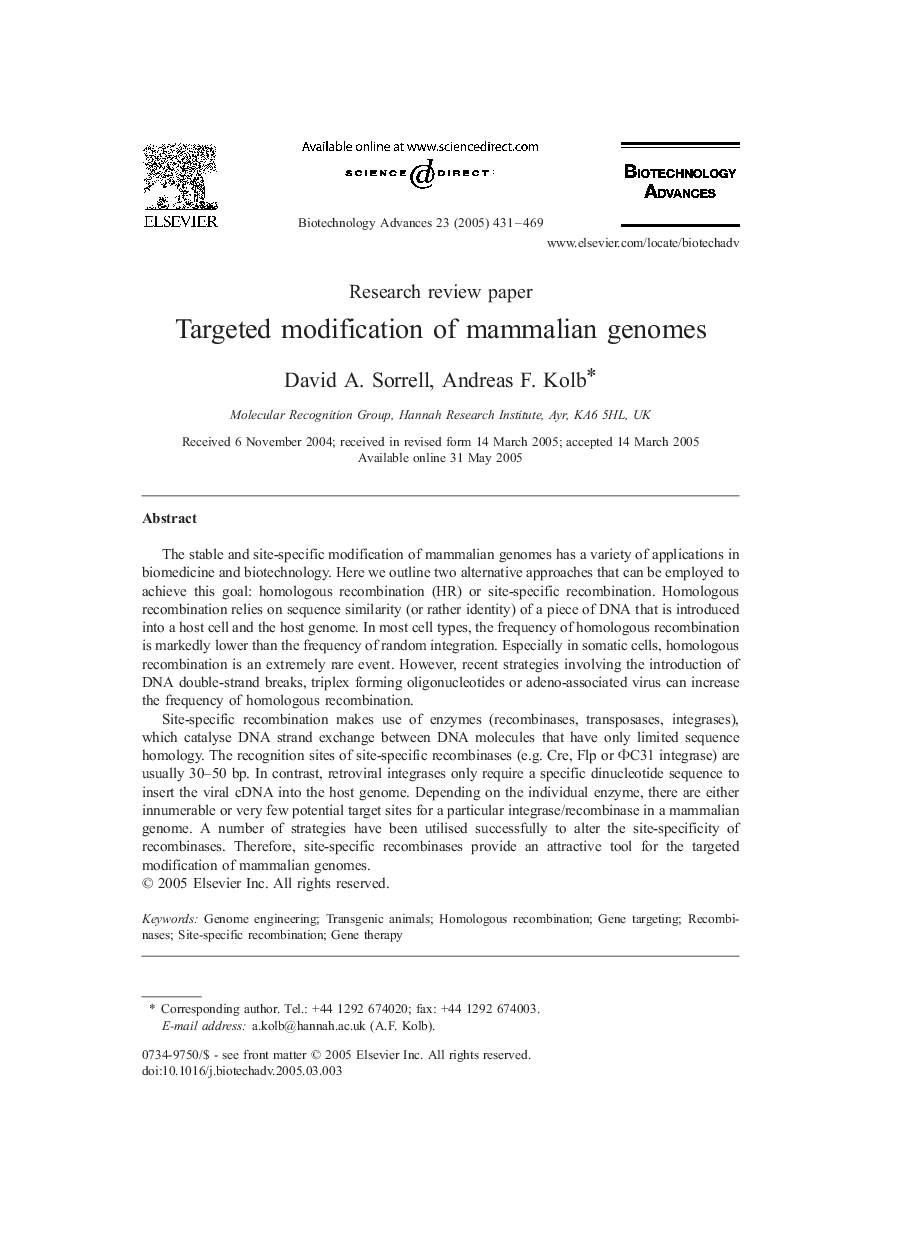| Article ID | Journal | Published Year | Pages | File Type |
|---|---|---|---|---|
| 9602562 | Biotechnology Advances | 2005 | 39 Pages |
Abstract
Site-specific recombination makes use of enzymes (recombinases, transposases, integrases), which catalyse DNA strand exchange between DNA molecules that have only limited sequence homology. The recognition sites of site-specific recombinases (e.g. Cre, Flp or ΦC31 integrase) are usually 30-50 bp. In contrast, retroviral integrases only require a specific dinucleotide sequence to insert the viral cDNA into the host genome. Depending on the individual enzyme, there are either innumerable or very few potential target sites for a particular integrase/recombinase in a mammalian genome. A number of strategies have been utilised successfully to alter the site-specificity of recombinases. Therefore, site-specific recombinases provide an attractive tool for the targeted modification of mammalian genomes.
Keywords
Related Topics
Physical Sciences and Engineering
Chemical Engineering
Bioengineering
Authors
David A. Sorrell, Andreas F. Kolb,
